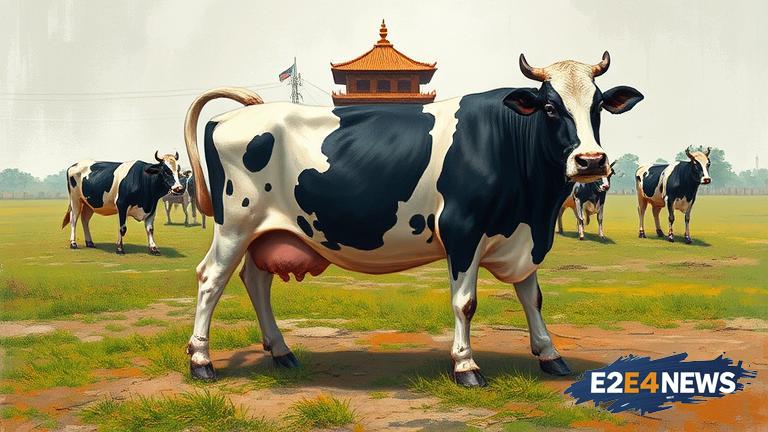The Supreme Court of Nepal has been at the center of controversy following its recent verdict on cow slaughter. The court’s decision has been met with widespread criticism, with many arguing that it constitutes judicial overreach. The verdict, which was handed down by a single judge, has been seen as an attempt to impose a particular ideology on the country. Critics argue that the decision is not based on the principles of justice and equality, but rather on personal beliefs. The court’s ruling has also been criticized for being overly broad and vague, leaving many to wonder what exactly constitutes cow slaughter. The verdict has sparked fears that it could be used to target minority groups, particularly Muslims and Christians, who consume beef as part of their dietary practices. Many have also expressed concerns that the decision could lead to a rise in vigilantism and mob violence. The court’s decision has been seen as a departure from the principles of secularism and democracy, which are enshrined in the Nepalese constitution. The verdict has also been criticized for being out of touch with the realities of modern Nepal, where many people rely on beef as a source of protein. The government has been accused of failing to speak out against the verdict, with many arguing that it has a responsibility to protect the rights of all citizens. The controversy surrounding the verdict has highlighted the need for greater judicial accountability and transparency in Nepal. Many have called for the establishment of an independent judicial commission to oversee the judiciary and ensure that it is acting in accordance with the principles of justice and equality. The verdict has also sparked a wider debate about the role of the judiciary in Nepalese society, with many arguing that it should be limited to interpreting the law rather than imposing its own ideology. The controversy has also highlighted the need for greater awareness and education about the importance of secularism and democracy in Nepal. The verdict has been seen as a setback for the country’s efforts to promote tolerance and understanding between different communities. Many have expressed fears that the decision could lead to a rise in communal tensions and violence. The international community has also been critical of the verdict, with many arguing that it constitutes a violation of human rights. The United Nations has expressed concerns about the decision, citing its potential impact on minority groups. The European Union has also spoken out against the verdict, arguing that it undermines the principles of democracy and secularism. The controversy surrounding the verdict has highlighted the need for Nepal to reaffirm its commitment to the principles of justice, equality, and human rights. The government has been urged to take steps to address the concerns of minority groups and to ensure that the rights of all citizens are protected. The verdict has also sparked a wider debate about the need for judicial reform in Nepal, with many arguing that the current system is in need of overhaul. The controversy has highlighted the need for greater transparency and accountability in the judiciary, as well as the need for a more independent and impartial judicial system.
